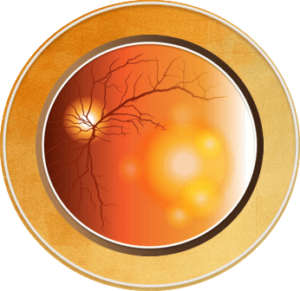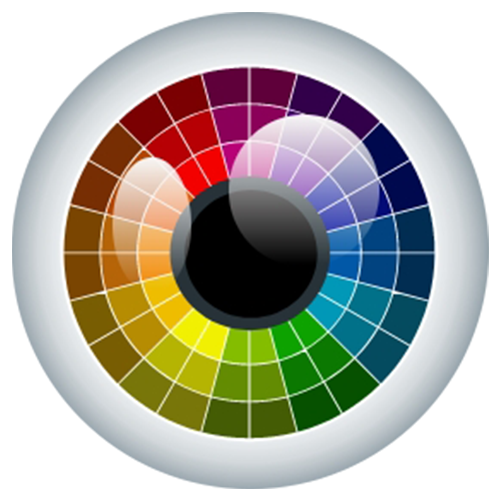AMD Management
Because there is no cure for age-related macular degeneration (AMD), the goal is to halt or slow the disease progression (using antioxidant vitamins and minerals) and effectively detect and manage choroidal neovascularization (CNV). To achieve this goal, early detection, diagnosis, monitoring, and treatment must be diligently practiced.1,2
Earlier detection allows earlier treatment, which leads to better patient outcomes. With proper care, significant visual acuity loss may be prevented in many patients. Much of early-stage and atrophic AMD treatment is based on modifying risk factors, such as quitting smoking, changing diet, and reducing light exposure, as well as other lifestyle modifications. Current and emerging treatments for neovascular AMD are discussed in the next section; however, these modifications can benefit all patients with AMD.1,3
Lifestyle modifications
Smoking cessation
Encouraging smoking cessation is the best method to reduce the risk of central vision loss due to the increased risk of development and progression of AMD. Following a healthy diet, exercising regularly, and maintaining overall health are sound goals for all patients. These lifestyle choices may act synergistically to prevent or delay onset or progression of AMD. Further, several systemic conditions that carry an increased risk of AMD, such as cardiovascular disease, diabetes, obesity, and hypercholesteremia, can be impacted by lifestyle modifications.1,2,4
Nutritional supplementation
Evidence suggests that prescribing nutritional supplements broadly associated with retinal and choroidal health leads to better outcomes compared to those who are not treated. The Age-Related Disease Studies (AREDS2) found that daily consumption of certain vegetables and minerals may slow the progression of AMD and reduce the risk of late AMD by 25%. A supplement formulation is advised in patients with intermediate or worse AMD, and includes:1,2,5,6
- 500 mg vitamin C
- 400 IU vitamin E
- 10 mg lutein/2 mg zeaxanthin
- 80 mg zinc (or 25 mg) + 2 mg copper (to prevent potential anemia)
Eye protection
Chronic sunlight exposure increases the risk of AMD. Protective eyewear, such as full-spectrum ultraviolet (UV) protection, as well as high energy visible light-blocking eyeglass lenses, may be beneficial.2
Psychosocial support
AMD is associated with functional impairment, high rates of depression and anxiety, loss of independence, and emotional distress. Resources to help manage the impact of AMD can include support groups, financial and practical assistance, community engagement, and caregiver support.7,8
Vision rehabilitation
Once visual acuity has reached the point in which self-care becomes difficult, referral to a low-vision rehabilitation specialist becomes a vital part of care, helping people to make the most of the vision they have and improving quality of life. Services offered include assistive devices, technology, transportation, and household services.7,9,10
By offering a comprehensive range of psychosocial supports, people with AMD can better manage the emotional and practical challenges of vision loss, improving their overall quality of life and mental well-being.7
If you are looking for more information on AMD management tips for caring for your patients, check out our other clinician resources.
References
- Vemulakonda GA, Bailey ST, Kim SJ, et al. Age-Related Macular Degeneration Preferred Practice Pattern®. Ophthalmology. 2025;132(4):P1-P74.
- Practical Guidelines for the Treatment of AMD – Sponsored by MacuLogix – October 2017. https://www.reviewofoptometry.com/publications/ro1017-practical-guidelines-for-the-treatment-of-amd
- Fernandes AR, Zielińska A, Sanchez-Lopez E, et al. Exudative versus nonexudative age-related macular degeneration: Physiopathology and treatment options. Int J Mol Sci. 2022;23:2592.
- Chuck RS, Dunn SP, Flaxel CJ, et al. Comprehensive Adult Medical Eye Evaluation Preferred Practice Pattern®. Ophthalmology. 2021;128:P1-P29.
- Centers for Disease Control and Prevention (CDC). About Age-Related Macular Degeneration. Vision and Eye Health. May 21, 2024. https://www.cdc.gov/vision-health/about-eye-disorders/age-related-macular-degeneration.html
- Keenan TDL, Agrón E, Keane PA, Domalpally A, Chew EY. Oral antioxidant and lutein/zeaxanthin supplements slow geographic atrophy progression to the fovea in age-related macular degeneration. Ophthalmology. 2025;132(1):14-29.
- American Macular Degeneration Foundation (AMDF). Emotional Well Being. https://www.macular.org/living-and-thriving-with-amd/emotional-well-being
- Berman K, Brodaty H. Psychosocial effects of age-related macular degeneration. Int Psychogeriatr. 2006;18:415-428.
- Cunningham J. Recognizing age-related macular degeneration in primary care. JAAPA. 2017;30:18-22.
- National Eye Institute. Vision Rehabilitation. https://www.nei.nih.gov/learn-about-eye-health/vision-rehabilitation
All URLs accessed May 25, 2025











